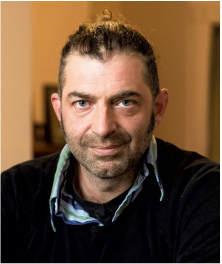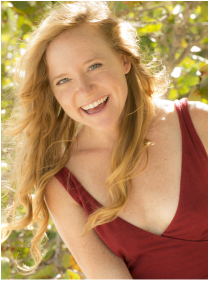
I tend to be an actor's director and work very organically. Each moment in a scene has the potential to be riveting, even if it's a character doing her laundry. A play is simply a map to the performance as a whole, I feel the director’s job is to allow actors to fully embody the essence of that map, to feel the different elevations and to find a place within it that is unique. From this place, the story is told—a special place where each particular actor can fully explore all of the play's mysteries and sureties.
At its core, A Number is about:
Being unique. It's about how dearly we hold our identities with the conviction that we are, even with the knowledge that countless humans have come before us, somehow singular in all of time. The play challenges us investigate what truly makes us individuals, even if we are standing in the presence of a perfect genetic copy of ourselves. In a similar way, we are also allowed to see this action from the viewpoint of a parent, whose genes were the source of it all.
What is the most challenging aspect of directing A Number?
A Number is a stunning combination of subtle language, horrible and beautiful lies, murder, and human cloning. The challenge was to reveal to the audience how truly simple and beautiful the story is. Luckily, my team was able to take my vision and turn it into something even more audacious, fun, and moving than I could have conceived alone.
Are you approaching your section of A Number as mutually exclusive from the other two pieces?
No. Being the last section, it relies so heavily on everything that came before. I stressed to my artists how important it was to be familiar with the play as a whole.
The script for A Number does not have many stage directions, or even much punctuation; do you consider this a gift or a challenge when directing your “slice” of The Bake Off?
It has been a gift. Even more than the lack of punctuation, there is the lack of completion of voiced thoughts from each character. Many characters’ lines seem interrupted or incomplete. This marvelous conceit allows me and the artists to complete the characters' sentences in our heads— it keeps us on our toes as far as the meaning of each line. With minimal stage direction, it allows us to create all of the action based on what is occurring as opposed to being actions to make things occur. There can be more creativeness this way.
What makes directing this play fun?
The anticipation of seeing how three different visions will work as a whole.
What's your favorite line in the play?
“We've got ninety-nine per cent the same genes as any other person. We've got ninety per cent the same as a chimpanzee. We've got thirty percent the same as a lettuce. Does that cheer you up at all? I love about the lettuce. It makes me feel I belong.”







